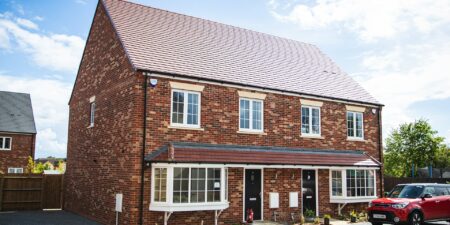Living in a unique space that was once a bustling shop or office with a rich history might sound enticing. While the idea of transforming a commercial space into a residential haven might spark your imagination, it’s essential to understand the legalities and regulations surrounding this matter. Here, we will explore the questions of whether it is legal to live in a commercial property on the British mainland by shedding light on the factors involved.
Understanding the Planning Permission
The first and foremost consideration when contemplating living in a commercial property is the issue of planning permission. In the UK, properties are categorised as either “residential” or “commercial” for planning purposes. Residential properties are intended for habitation, while commercial properties are designated for business or non-residential activities. To legally convert a commercial property into a residential dwelling, you would typically need to obtain the necessary planning permission from the local authorities. Seeking the guidance of commercial property agents can be immensely beneficial in dealing with the complexities of the process.
In addition to their expertise in navigating the planning permission process, commercial property agents can help you identify suitable commercial properties with residential potential. They have knowledge of the local property market and can guide you towards properties that have the potential for successful conversion, taking into consideration factors such as location, accessibility, and existing infrastructure.
Change of Use
To convert a commercial property into a residential space, you may need to apply for a “Change of Use” permission. This process involves demonstrating that the proposed residential use will not have a detrimental impact on the surrounding area or conflict with any planning policies. The local planning department will assess factors such as the building’s location, impact on neighbours, transportation considerations, and infrastructure capacity before granting permission.
To support your application for “Change of Use” permission, you will typically need to provide various documents and plans, such as architectural drawings, floor plans, and a written justification outlining the benefits of the conversion. The proposed residential use must be supported with a compelling case that demonstrates how it will enhance the area, and align with the overall planning objectives.
Building Regulations
In addition to planning permission, complying with building regulations is essential when converting a commercial property into a residential space. Building regulations ensure that the property meets specific health, safety, and structural requirements. These regulations cover aspects such as fire safety, insulation, ventilation, electrical systems, and accessibility. Hence it is crucial to work with qualified professionals, such as architects and contractors, who are familiar with building regulations to ensure compliance throughout the conversion process.
Lease Considerations
Commercial leases are specifically designed for non-residential purposes, such as businesses or offices. Therefore, they often contain clauses that explicitly prohibit residential use. It is crucial to thoroughly review the terms of the lease agreement before proceeding.
Here are a few points to consider regarding lease agreements and residential use:
- Prohibition of Residential Use: Commercial leases commonly include clear language that restricts the property’s use to commercial or non-residential activities. This prohibition aims to maintain the intended purpose of the property and uphold the terms of the lease agreement. It is important to understand that residing in a commercial property without the necessary permissions would likely constitute a breach of the lease agreement.
- Negotiating with the Landlord: Depending on the circumstances and the landlord’s willingness, it may be possible to negotiate with them regarding residential use. This could involve presenting your intentions, outlining the benefits of your proposal, and addressing any concerns the landlord may have. If negotiations are successful, the lease agreement may be modified or amended to include specific permissions for residential use.
- Written Consent: If the landlord grants consent for residential use, it is essential to obtain their approval in writing. A written agreement ensures clarity and helps prevent misunderstandings between both parties. Working with legal professionals can be beneficial in documenting the landlord’s consent and ensuring that the terms are properly incorporated into the lease agreement.
- Exploring Alternatives: If obtaining consent for residential use is not feasible or if the commercial property is unsuitable for conversion, it may be necessary to explore alternative options. This could involve searching for properties that are already designated for residential use or considering purpose-built residential developments.









